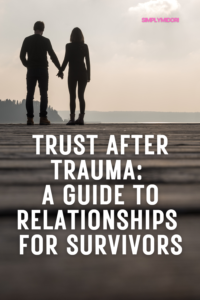Have you ever wondered why some people seem to effortlessly achieve their goals while others struggle to make progress? It all boils down to one key factor: self-awareness. Let’s explore why self-awareness is the cornerstone of personal development and how it can unlock your potential.
Why Is Self-Awareness Important?
Embarking on the journey of self-awareness is akin to peeling away layers of oneself, revealing the multifaceted aspects of your being. It’s a transformative voyage where you uncover hidden gems within, allowing for profound personal growth. With self-awareness, you hold the power to reassess and reshape deeply ingrained beliefs that no longer help us align with our highest good.
The path of self-discovery is boundless, offering a tapestry of surprises and adventures within your inner landscape. As you delve deeper into self-awareness, you uncover not only your human behavior (both good and bad) but also your strengths, weaknesses, and personality traits and gain insight into the workings of your mind. True self-awareness transcends mere acknowledgment of your attributes; it involves observing your thoughts impartially, free from emotional entanglements.
For instance, in moments of agitation, you might consciously acknowledge, “I am experiencing anger.” This detached observation allows you to delve further, probing the roots of your emotions and understanding their origins. Beneath the surface turmoil lies a serene core—a soul untouched by transient emotions. Through introspection, you begin to discern between the fluctuations of the mind and the essence of your being.
What Is Self-Awareness?

Self-awareness encompasses the capacity to perceive various facets of our personality, behavior, emotions, motivations, and thought processes without succumbing to self-criticism. It entails the ability to observe oneself objectively, free from negative judgment or bias.
In essence, self-awareness involves paying meticulous attention to our internal landscape and comprehending the intricacies of our being. It empowers us to discern our true selves, unraveling the layers of our identity with clarity and insight.
Despite its paramount importance, internal and external self-awareness often receives scant attention in traditional educational settings. Many individuals traverse their formative years without grasping the essence of self-awareness. It’s not until early adulthood that they begin to contemplate what propels them, what principles they uphold, and what holds genuine significance in their lives.
What Does It Mean to Have Self-Awareness?
Self-awareness manifests in various ways, offering profound insights into our inner workings and outer interactions:
- Identification of Emotions: Self-aware individuals adeptly identify their emotions and discern how these feelings influence their behavior; they have emotional intelligence.
- Recognition of Coping Mechanisms: They are cognizant of their primary coping mechanisms and understand how they navigate challenges and stressors.
- Definition of Beliefs: Self-awareness empowers individuals to define their beliefs autonomously, unaffected by external influences or societal pressures.
- Prioritization of Joy: They prioritize activities and pursuits that bring them joy and fulfillment, aligning their actions with their genuine passions and interests.
- Acknowledgment of Strengths and Shortcomings: They possess a keen awareness of their strengths and shortcomings, leveraging their strengths and actively addressing areas for improvement.
- Understanding of Relationship Needs: Self-aware individuals discern their relational needs and boundaries, fostering healthy and fulfilling connections with others.
True introspection often unfolds gradually, with significant milestones such as college and post-graduate life serving as catalysts for deeper self-discovery. During these transformative phases, individuals delve into various aspects of their identity and aspirations:
- Exploration of Passions: They explore causes, interests, and topics that resonate deeply with them, shaping their sense of purpose and direction in life.
- Formation of Values: Through experiences and interactions, they crystallize their values and principles, aligning their choices and actions with their authentic beliefs.
- Cultivation of Lifestyle: Individuals curate their lifestyles, from their living spaces and social circles to their career paths and personal relationships, reflecting their evolving sense of self.
Internal and external self-awareness transcends mere perception; it embodies a profound understanding of one’s true essence and lived experiences. It is a journey of self-discovery and authenticity, fostering growth, resilience, emotional intelligence and fulfillment in every aspect of life.
How can I become a self aware person?

1. Be Mindful of Your True Emotions
Take time to reflect on your genuine emotions and how they influence your decisions and lifestyle. Ask yourself if you’re living authentically or conforming to external expectations. Explore your gut feelings and innermost desires to discern if they align with your actions and choices. For example, assess whether your career path, relationships, and personal pursuits resonate with your true self or if you’re merely following societal norms or others’ expectations.
2. Keep Track of Your Feelings
Maintaining a record of your emotions, both positive and negative, can provide valuable insights into your inner world. Consider documenting your feelings daily or periodically, using a journal, digital notes, or a spreadsheet.
By consistently recording your emotions over time, you can identify patterns and trends that reveal underlying motivations, aspirations, and challenges. This practice allows you to gain clarity on what truly drives you, what inspires you, and what fears or limitations may be holding you back from realizing your full potential.
Through this process of self-reflection and emotional tracking, you can cultivate a deeper understanding of yourself, enabling you to make informed decisions and take meaningful steps toward personal growth and fulfillment.
3. Monitor Areas of Impact and Energy

Identify critical areas of your life where you believe you can make the greatest impact in designing the lifestyle you truly desire. Keep track of your energy levels throughout the day, noting when you feel most focused, energized, and capable of performing your best work.
Tracking your energy patterns can offer insights into your motivators and stressors. Consider incorporating regular meditation into your routine, whether through formal practice or brief moments of mindfulness, to promote self-awareness and relaxation.
Review and Reflection
Take time each day to review your activities and progress towards your life goals. Reflect on your achievements, the tasks that contribute to your goals, and those that hinder your progress. Ask yourself:
- What am I trying to achieve in life?
- How am I approaching my goals, and which tasks aid or impede my progress?
- How can I optimize tasks that don’t align with my goals?
Mindful Engagement in Routine Tasks
Engage in mundane tasks, such as household chores, as opportunities for introspection and relaxation. While performing these routine activities, allow your mind to wander and reflect on your life’s trajectory, your feelings about your progress, and potential areas for improvement.
Prioritizing and Planning
Follow the example of successful individuals by documenting your key plans and priorities. Regularly assess your progress towards your goals, identify areas for refinement, and adjust your strategies accordingly to ensure alignment with your aspirations.
Integrating these practices into your daily life can enhance internal and external self-awareness, optimize your energy, and cultivate a deeper understanding of yourself and your goals.
4. Utilize Psychometric Testing
Consider taking a psychometric test such as the Myers-Briggs Type Indicator (MBTI) or the Predictive Index to gain deeper insights into your personality and behavioral tendencies. These tests provide valuable assessments based on traits or characteristics, offering a nuanced understanding of your preferences and strengths.
Exploring Personal Traits
Psychometric tests present questions that prompt you to consider aspects of your personality, preferences, and decision-making processes. For example, you may be asked whether you are more driven by action or passion, or whether your success is influenced by instincts or analytics.
Benefits of Psychometric Testing
By engaging in psychometric testing, you can gain clarity on what motivates you, how you approach challenges, and what factors contribute to your success. These assessments serve as tools for self-reflection and self-discovery, enabling you to understand yourself and your unique attributes better.
Integration with Self-Awareness Practices
Incorporate the insights gleaned from psychometric testing into your self-awareness practices. Use the results to refine your personal development strategies, align your goals with your strengths, and navigate interpersonal dynamics with a deeper understanding of your tendencies.
Conclusion
Psychometric testing offers a structured approach to self-assessment, providing valuable insights that complement your journey toward greater self-awareness. By leveraging these assessments, you can unlock new perspectives on your personality and behavior, fostering personal growth and empowerment.
5. Seek Feedback from Others

Harness the power of external awareness by soliciting feedback from family, friends, and colleagues. These individuals offer valuable insights into your character, behaviors, and achievements, providing a comprehensive view of who you are and how others perceive you.
Facilitating Honest Conversations
Encourage honesty and objectivity in the feedback process, reassuring individuals that constructive criticism is welcomed and appreciated. While some feedback may be challenging to hear, it presents an opportunity for growth and self-improvement.
Gaining Awareness of Weaknesses and Strengths
Embrace feedback as a self-awareness tool, acknowledging your strengths and weaknesses. By understanding areas for improvement, you can develop strategies to address them and cultivate a more balanced and effective approach to personal and professional endeavors.
Implementing Feedback Systems
Establish robust feedback mechanisms in professional settings to facilitate continuous learning and development among team members. Leverage HR and your professional development to create open communication and constructive feedback exchanges, fostering a culture of growth and mutual support.
Conclusion
Seeking feedback from others offers valuable insights that complement your self-awareness journey. Embrace honest assessments as opportunities for personal and professional growth, leveraging external perspectives to refine your understanding of yourself and your interactions with others.
What are the signs that you lack of self-awareness?

Navigating life without a clear understanding of oneself can lead to uncertainty and inconsistency in actions and behaviors. Here are some signs that indicate you are not a self-aware person:
1. Lack of Understanding of Personality
Individuals lacking self-awareness may struggle to identify and comprehend their personality traits, preferences, and tendencies. Without this insight, they may find it challenging to navigate social interactions and personal relationships effectively.
2. Inability to Recognize Behavior Impact
They may fail to recognize how their behavior affects others, leading to misunderstandings and conflicts in interpersonal dynamics. This lack of awareness can result in unintentional alienation and disconnection from those around them.
3. Limited Emotional Control
A deficiency in self-awareness often manifests in difficulty managing emotions and reactions. Individuals may find themselves easily overwhelmed by emotional fluctuations, leading to impulsive behavior and heightened sensitivity to external stimuli. This person can be characterized as having low emotional intelligence.
4. Unexplored Motivations
They may have little insight into their internal and external motivations, making it challenging to align their actions with personal values and goals. This lack of clarity can result in aimless pursuits and a sense of dissatisfaction with life direction.
5. Personalization of Criticism
Difficulty processing flaws, feedback, or criticism without taking it personally is a common trait among those lacking self-awareness. Instead of viewing feedback as an opportunity for growth, they may interpret it as a personal attack, hindering their ability to learn and adapt.
Cultivating Self-Awareness
Recognizing these signs is the first step toward cultivating both internal and external self-awareness. Through introspection, reflection, and seeking feedback from others, individuals can embark on a journey of becoming self-aware, gaining deeper insight into their personality, behavior, emotions, and motivations. By fostering self-awareness, individuals can enhance their personal growth, improve relationships, and achieve greater fulfillment in life.
What causes people to lack self-awareness?

Many individuals lack a true understanding of themselves due to societal norms, educational systems, and personal experiences that prioritize conformity over self-discovery. Here are some factors that contribute to us not being self-aware:
1. Influence of Social Norms
From a young age, individuals are conditioned to conform to societal norms and expectations. Pressure to fit in and adhere to predefined standards often overrides the exploration of personal identity and values.
2. Educational Systems
Traditional educational systems focus primarily on academic achievement rather than holistic personal development. Students are encouraged to follow prescribed curricula and meet standardized criteria, leaving little room for self-exploration and introspection.
3. Parental and Authority Influence
Parents, teachers, and other authority figures play a significant role in shaping individuals’ beliefs and behaviors. Their influence can overshadow personal autonomy, leading individuals to prioritize external validation over internal reflection. (Click Here to read about how parents influence your subconscious).
4. Lack of Time for Self-Reflection
Busy schedules and demanding obligations leave little time for individuals to engage in introspection and self-reflection. The pursuit of academic, professional, and social success often takes precedence over self-discovery and personal growth.
5. External Validation
The desire for external validation and approval can obscure individuals’ ability to connect with their true selves. Seeking affirmation from others becomes a primary motivator, eclipsing the importance of internal fulfillment and self-understanding.
6. Limited Exposure to Diverse Experiences
A narrow range of experiences and perspectives can limit individuals’ opportunities for self-exploration. Without exposure to diverse cultures, ideologies, and lifestyles, individuals may struggle to develop a nuanced understanding of themselves and their place in the world.
Cultivating Self-Awareness
Overcoming these barriers to internal and external self-awareness requires deliberate effort and commitment to personal growth. By challenging societal norms, fostering a supportive environment for introspection, and prioritizing authenticity over conformity, individuals can embark on a journey of self-discovery and fulfillment. Through mindfulness practices, reflection on our inner thoughts, and seeking diverse experiences, individuals can cultivate a deeper understanding of themselves, their unique identity and self worth.
Learning that others’ perception of you or your work doesn’t match up with your own is unsettling, but there are steps you can take to repair it. Learning how you’re perceived can provide an opportunity for self-improvement and professional growth. When you make the effort to reflect, seek additional feedback, acknowledge missteps, learn, and reach out for support, you’ll foster a new perception that you’re committed to — and capable of — growth.
Tasha Eurich- Organizational Psychologist
Conclusion
In conclusion, self-awareness is not just a buzzword but a fundamental aspect of personal growth and leadership. It enables us to recognize ourselves without the lens of self-criticism, allowing for genuine introspection and understanding of our true identity. Unlike self-image, which may be skewed by how people perceive us, self-awareness involves an honest assessment of our actions, beliefs, and values.
By tuning into our inner emotions and analyzing our behaviors, we gain clarity on who we are and what we stand for. This self-awareness can help us to make decisions aligned with our core values and pursue paths that bring fulfillment and satisfaction.
Whether it’s in our personal relationships, professional endeavors, or societal contributions, self-awareness guides our personal experience toward authenticity and purpose.
However, developing internal and external self-awareness requires dedication and a willingness to confront uncomfortable truths about ourselves. It involves listening to our inner voice, acknowledging our strengths and weaknesses, seeing our blind spots and embracing our unique identity. Through this journey of self-discovery, we uncover the keys to unlocking our full potential and living a life true to ourselves.
Ultimately, self-awareness is the cornerstone of personal excellence and fulfillment. It enables us to navigate life’s challenges with clarity and resilience, fostering deeper connections with ourselves and others. By cultivating self-awareness, we pave the way for meaningful growth, purposeful action, and lasting fulfillment in all aspects of our lives.
Subscribe to our newsletter!












